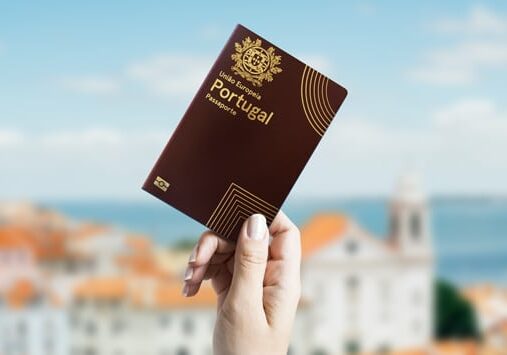
Also known as the Entrepreneur Visa Portugal, the Portugal D2 Visa is designed for those wanting to start a new business or expand an existing one in Portuguese territory.
The Portugal D2 Visa offers significant benefits, including a residency permit and visa exemption for travel across Schengen countries.
Navigating the Portugal D2 Visa’s requirements and application process can be complex. Our comprehensive guide will provide all the essential details you need to obtain the D2 Visa Portugal, covering key aspects such as:
What is the Portugal D2 Visa?
The D2 Visa is a Portugal residency visa designed for non-EU entrepreneurs who wish to contribute to the Portuguese economy by buying an existing business or presenting a business plan for new ventures.
Unlike the Portugal Golden Visa program or Portugal D7 Visa (Passive Income Visa), the Portugal D2 Visa does not require a large investment or steady passive income. Instead, it focuses on business investment and a viable business plan or idea. The D2 Visa is flexible, accommodating various businesses, from small cafes to large real estate agencies.
There is no set minimum investment for the D2 Visa, but you must have sufficient financial resources to start and sustain your business and living expenses in Portugal for a year. The D2 Visa is valid for four months, during which you need to enter Portugal and apply for a residency permit.
After obtaining the D2 Visa, the residence permit is valid for two years and can be extended for three years. After five years of residency, you can apply for citizenship in Portugal and/or permanent residence.
Portugal D2 Visa Routes
Entrepreneur route
This pathway is suitable for individuals who intend on starting a business in Portugal or expand an existing Portuguese business. To qualify for the D2 Entrepreneur Visa Portugal, certain requirements must be met:
- Obtaining an NIF number (Portuguese tax number)
- Opening a business bank account with a Portuguese bank
- Establishing a Portuguese limited company (LDA)
- Employing an accountant with adequate knowledge of the Portuguese tax system to assist with corporate tax and other financial elements of the business.
Additionally, it is necessary to demonstrate sufficient financial means to initiate and manage the company, which includes fulfilling obligations such as paying annual corporation tax and social security contributions.
Entrepreneurs may be considered for the Portugal D2 Visa under one or more of the following criteria:
- The acquisition of a Portuguese company
- Having a pre-existing company abroad
- Provide proof of intention to invest in a Portuguese territory duly described and identified in a business plan
All applicants must demonstrate their business’s potential economic and social contributions to Portugal.
Independent service provider route

Here are the key aspects of the D2 Freelancer Visa:
- Obtaining a tax identification number in Portugal
- Open a bank account in Portugal
- Prove the existence of a self-employment agreement, or promise of a self-employment agreement, with a Portuguese-based company.
Suppose your company’s services are delivered remotely to clients located outside Portugal. Alternative options like the Portugal Digital Nomad Visa (D8) are worth considering. However, for the D8 Visa, your income must be four times the Portuguese minimum salary, which is €3,480.00.
What are the benefits of the Portugal D2 Visa?

Opportunities for entrepreneurs: The D2 Visa authorizes you to set up a business or function as an independent or liberal professional in Portugal, opening doors for your entrepreneurial ambitions.
Visa exemption across the Schengen Area: The visa permits unrestricted entry and movement within the Schengen Area, including 29 European nations, without necessitating an additional visa.
Family reunification: The D2 Visa also provides for family reunification in Portugal. This means your family members, including your spouse, children, parents, or dependent siblings, can join you and reside in the country.
Route to permanent residency and citizenship: After five years of legal residency in Portugal, you may be eligible to acquire a permanent residence permit and Portuguese citizenship under the country’s residency program.
Residential rights and service access: With Portuguese residency, you and your family members gain access to the public healthcare system, and your children can register in the public education system, providing essential services for your family’s well-being.
Tax benefits
Portugal’s new Tax Incentive for Scientific, Research, and Innovation, also called NHR 2.0, makes specific provisions for Portugal D2 Visa applicants earning income in certain categories.
For qualifying Portugal D2 Visa applicants, the benefits of the new NHR are:
- 20 percent flat tax rate on income acquired in Portugal
- Possible tax exemptions on foreign-sourced income such as dividends, interest, capital gains, and rent
- Retain tax benefits for a 10-year-period
Progressive tax rates of 25 to 28 percent will apply to Portugal D2 Visa applicants who don’t qualify. Pension tax exemptions do not apply under the Incentive for Scientific, Research, and Innovation regime.
⚠️ Portugal Nationality Law Changes 2025
A draft law published in June 2025 proposes major changes to Portugal’s nationality rules. The main change is increasing the residency requirement for citizenship from 5 to 10 years (7 years for CPLP nationals).
It's important to note that the draft proposal is only a set of recommendations, and there are a few more steps before it becomes law. To learn more, read Portugal Nationality Law Changes 2025
Portugal D2 Visa Requirements
Required business documents

Your business plan also needs to include:
- Personal and company NIF number
- Social Security number
- Business certification
- Social Security tax receipts
- Your Portuguese business bank account details
- Bank statement with proof of capital transfer
- Employment contracts
2. Investment declaration: A declaration indicating that you have invested or intend to invest in Portugal, detailing the investment’s type, worth, and timeframe, is required. Factors such as your investment’s economic, social, scientific, technological, environmental, or cultural value will be considered when assessing your visa application. Plus, creating job openings in Portugal will significantly enhance your application.
3. Financial ability: Proof of having the financial capability to support and maintain your company throughout your planned stay in the country is essential, particularly to prove you can generate sufficient business income by paying corporate tax. Demonstrating the financial viability of your business and its capability to prosper during your stay in Portugal is crucial.
4. Share capital: The share capital is the minimum initial investment needed to ensure the business operates smoothly, even when it may not profit. In Portugal, small businesses usually have an average share capital of €5,000, a benchmark worth considering when applying.
5. Company establishment: Evidence of having set up a company within Portuguese jurisdiction or of having adequate financial resources in Portugal, as well as documents indicating your ability to establish a company in the country, are required.
6. Service contract: Independent service providers must include a written contract or proposal outlining their service provision in their applications.
Required personal documents
1. NIF and Portuguese bank account: To apply for a D2 Visa Portugal, you must secure a Tax Identification Number from the Portuguese tax authorities and open a personal and business Portuguese bank account. These two steps are essential for the D2 Visa application process.
2. Criminal background check: A clear criminal record certificate from every country you have lived in for over a year is typically required. This document should be no more than three months old when applying. Although many people believe otherwise, having a criminal record does not automatically exclude you from visa eligibility requirements—it depends on the nature and severity of the crime. A criminal record that includes crimes that would lead to a prison sentence in Portugal could potentially cause an issue with your application. In these cases, it’s best to consult an immigration specialist.
3. Designation of a tax representative: Non-EU citizens are required to appoint a tax representative in Portugal as part of the D2 Visa application process.
4. Personal financial requirements: 
To meet the Portugal D2 Visa financial prerequisites, This balance increases with each family dependent:
- An extra 50 percent (€5,220.00) is needed for a spouse or any other family member over 18,
- An extra 30 percent (€3,132) is needed for each family member under 18.
For example, a family of four with two adults and two minors must meet minimum income requirements and maintain at least €41,488.00 in their Portuguese bank account during the family reunification period.
5. Proof of accommodation in Portugal: Proof of secure accommodation in Portugal must be provided. This can take the form of a rental contract, property ownership documents, or a letter of invitation from a friend or relative who is a legal resident of Portugal.
6. Travel insurance cover for at least six months: You should have at least six months of travel insurance coverage, which covers the initial four-month Portugal D2 Visa and the waiting period for registering as a resident with AIMA (Agency for Integration, Migration, and Asylum). Once you receive your temporary residence permit, you’ll be eligible for Portuguese state healthcare. While legal residents can benefit from Portugal’s public healthcare, foreign nationals often prefer health insurance. Private health insurance prices range between €30 and €150 per month, depending on the coverage and the individual’s age.
7. Other personal documents required are:
- Completed D2 Visa application form
- A valid passport and a certified copy of it – which must be valid for at least six months after your visa expires
- Two color photographs (3×5 cm)
- Proof of financial resources
- Proof of health insurance
Applying for a Portugal D2 Visa

Following the acquisition of the Portugal D2 Visa, the applicant can then apply for a Portuguese residency permit.
You must follow the following steps to apply:
- Obtain a Portuguese Taxpayer Identification Number (NIF)
- Open a personal and business Portuguese bank account and deposit funds into it
- Arrange for long-term accommodation in the country by either buying or leasing a property for a minimum of one year, even if the agreement includes a provision for early termination
- Apply online via the E-Visa Portal or VFS. You can also do this through the Portuguese Consulate or Embassy in your home country.
The Portugal D2 Visa application process occurs in two separate phases.
In the first phase, most of your documents, including your business plan, are submitted to the Portuguese Embassy or Consulate in your country of residence. Upon approval of your application, you will be asked to attend an interview. If successful, a four-month Portugal D2 Visa will be granted, enabling you to travel to Portugal and enter Portugal to apply for residency.
The second phase happens in Portugal with the Agency for Integration, Migration, and Asylum (AIMA). AIMA schedules an appointment for you, and you’ll be sent an appointment date with your visa. Suppose all available AIMA appointment slots exceed your visa’s validity. Your legal status in Portugal remains unaffected past the four-month visa term as long as an appointment is scheduled.
Portugal D2 Visa Costs and Fees
While there’s no predefined amount for business investment, entrepreneurs must demonstrate their financial capability to operate the intended business. In addition, proof of adequate funds to sustain yourself in Portugal for a year, equal to at least €10,640, and proof of rented or owned accommodation in Portugal is necessary.
Other costs include a €90 government fee, health insurance, and legal services.
Expense | Cost |
Business investment | No minimum investment amount |
Living expenses | €10,440 |
Housing | Dependent upon location and type of property |
Consular fee | €90 |
Residence permit card fee | €155.50 |
Health insurance | €400+ |
Professional visa and tax advice | Variable |
How to get Portugal Citizenship After the D2 Visa
Once you’ve resided legally in Portugal for five years on a Portugal D2 Visa, you can apply for citizenship or permanent residence.
Permanent residence requirements
To apply for a permanent residency permit through the Portuguese entrepreneur visa, you will need to fulfill several key criteria:
- Permanent residency requirement: You must have lived in Portugal for at least five years. This period doesn’t have to be continuous. Still, there should not be any gaps longer than six consecutive months or eight non-consecutive months within the validity of the residency permit.
- Financial stability: You must prove that you have stable and regular resources sufficient to support yourself (and any dependents if you apply for family reunification).
- Accommodation: You must demonstrate that you have a place to live in Portugal. This could be proof of property ownership or a rental agreement.
- Clean criminal record: You must have a clean criminal record. This generally means that you have not been convicted of any crime with a prison sentence of more than one year in Portugal.
- Social Security: You must register with Portuguese Social Security and demonstrate regular contributions throughout your residence. This will require getting an NISS number, which is essentially the same as a Social Security number in the US.
- Health insurance: Although you will have access to the national healthcare service as a legal resident, you must possess valid health insurance until you become a permanent resident.
- Integration into Portuguese society: This could include factors like language proficiency, community involvement, or other evidence of your commitment to living and integrating into Portuguese society.
After gathering the necessary documents, you must book an appointment with AIMA to submit your permanent residency application.
Portuguese citizenship requirements
One of the crucial requirements to become a Portuguese citizen is to prove proficiency in the Portuguese language. Language proficiency is required only for applicants who come from non-Portuguese-speaking countries. They must demonstrate a minimum proficiency in Portuguese by taking the basic Portuguese language text, equivalent to level A2 or higher.
Portugal D2 Visa vs. the D7 and Golden Visas: What option to choose?
Each visa serves a different purpose depending on an individual’s intentions and capabilities. The choice largely depends on an individual’s financial situation, business ideas, and immigration goals.
>For example, the D7 Visa suits those with a steady passive income who wish to live in Portugal without starting a business. On the other hand, the Portugal Golden Visa program requires a substantial investment into a designated government program. Still, it provides a swift path to residency, making it appealing to high-net-worth individuals.
Category | D2 Visa | D7 Visa | Golden Visa |
Intended for | Entrepreneurs | Self-employed individuals/ Retirees | Investors |
Financial requirements | Capital to establish or invest in a business, and sufficient funds to cover your living expenses | Twelwe months of Portuguese minimum wage (€10,440) | Minimum investment of €250,000 |
Criteria to be eligible | Be a non-EU/EEA/Switzerland freelancer, entrepreneur, or independent service provider | Be a non-EU/EEA/Switzerland individual with a passive source of income | Make a qualifying investment in Portugal |
Visa fees | Approximately €90 | Approximately €90 | €773.74 (online application submission), €7,730.10 (granting the permit), €3,865.79 (per renewal) |
Permanent residency | After 5 years of uninterrupted living in Portugal | After 5 years of uninterrupted living in Portugal | After 5 years |
Stay requirement | Requires you to live in Portugal | Requires you to live in Portugal | Minimum of 14 days every 2 years |
Rights | Live, work, study, healthcare | Live, work, study, healthcare | Live, work, study, healthcare |
Family members | Yes, through the family reunification process | Yes, through the family reunification process | Yes, through the family reunification process |
Visa free movement | Schengen Area and certain EU countries | Schengen Area and certain EU countries | Schengen Area and certain EU countries |
An additional visa is the Portugal HQA Visa, or the Portugal Highly Qualified Visa, which aims to attract workers with high professional qualifications. Similarly, it is a two-year contract designed for those with the promise of a work contract or self-employed contract.
Why choose Global Citizen Solutions for your Immigration Visa?
GLOBAL APPROACH BY LOCAL EXPERTS
- GCS has offices located across Portugal.
- Members of the US-Portugal and UK-Portugal Chambers of Commerce in Portugal, and the Investment Migration Council (IMC).
- Our expert team can help you throughout your journey to secure your Visa.
100% APPROVAL RATE
- Our successful track record in applications provides reassurance to applicants.
- We have helped clients from more than 35 countries secure residency in Portugal.
ALL-ENCOMPASSING SOLUTION
- With a single channel of communication, our approach ensures that you have complete clarity on your application.
- Our BeGlobal® Onboarding System allows for a total flow of information.
TRANSPARENCY AND PRIVACY
- Our pricing is clear and detailed, you will not face any hidden costs.
- All data is stored within a GDPR-compliant database on a secure SSL-encrypted server.

Frequently Asked Questions about the Portugal D2 Visa
What is the Portugal D2 Visa?
The Portugal D2 Visa is a Portugal residency visa for entrepreneurs, freelancers, and independent service providers to immigrate to Portugal and start or invest in a business. However, an applicant must prove to have funds to start and run their business. Also, housing and money to live in Portugal for a year are required. The visa validity period is four months.
What are the required documents for the Portugal D2 Visa?
To apply for the Portugal D2 Visa, you’ll need several documents, including a criminal record certificate and proof of sufficient financial resources. You must also purchase health insurance and obtain a Portugal Tax Identification number.
What are the benefits of the D2 visa?
The benefits of the D2 Visa include residency in Portugal and visa-free travel to the Schengen area. It offers opportunities for starting a business in Portugal, offering potential tax benefits through Portugal’s tax regime.
Additionally, it provides a pathway to permanent residency and becoming a Portuguese citizen after five years of legal residency.
What are the income requirements for the D2 Visa?
There are no income requirements for the Portugal D2 Visa. However, the applicant must prove to have funds to start and run their business. Also, housing and money to live in Portugal for a year are required. The visa validity period is four months.
How much does it cost to get a Portugal D2 Visa?
When applying for the Immigrant Entrepreneur Visa or D2 Visa, entrepreneurs must prove financial capability to operate the intended business.
They must provide proof of funds to live in Portugal for a year, equal to at least €10,640. Other costs include Portuguese government fees, which are €90, medical insurance, and legal services.
What is the Portugal D2 Visa processing time?
The Portugal D2 Visa is usually issued in around 60 days. Once you have the visa, you’re allowed to enter Portuguese territory and apply for a temporary Portugal residence permit.
Are there limitations on the type of business for the Portugal D2 Visa?
There are no specific limitations on the type of business that qualifies for the D2 Visa. As long as your business plan demonstrates viability and a potential benefit to the Portuguese economy, it can be considered.
Can family members join under the Portugal D2 Visa program?
Your family can immigrate to Portugal when you get the entrepreneur visa (D2 Visa), and your family can get a Portuguese residence permit so you can have family reunification.
Golden Visa, D2 Visa, or D7 Visa, which one to pick?
Choosing between the Golden Visa, D2 Visa, and D7 Visa depends on your objectives. If opting for residency through investment, the Golden Visa is ideal. Choose the D2 Visa to start a business in Portugal.
Alternatively, if you have passive income (rental income, pensions, and dividends) and want Portuguese residency, consider the D7 Visa.
How does the D2 Visa differ from the Portugal HQA Visa?
D2 Visa: Focuses on entrepreneurs with innovative business ideas, requires a solid business plan and a business idea.
HQA Visa: Ideal for highly skilled professionals in specific industries and can be obtained through a job offer or by holding relevant qualifications.
Do Portugal D2 Visa holders need to pay taxes?
Portugal D2 Visa holders are generally subject to taxes in Portugal if they have income sourced within the Portuguese territory, such as rental income. They must demonstrate sufficient financial resources, typically at least a minimum annual salary.
What is the success rate for D2 Entrepreneur Visa applications?
The success rate for D2 Entrepreneur Visa applications in Portugal is 99.4%. The D2 visa application process can take up to 60 days and is valid for four months.
Can a US citizen start a business in Portugal?
Yes, a US citizen can start a business venture in Portugal. They can do so either by moving their existing business or starting a new one. In both cases, they would need to obtain a visa, such as the Startup Visa, specifically catering to entrepreneurs.
Do Portuguese entrepreneur visa applicants need health insurance?
Yes, Portuguese entrepreneur visa applicants need health insurance to cover their medical expenses while living in Portugal. This requirement also extends to any dependent child included in the application. While Portugal has a public healthcare system, private health insurance is necessary for visa purposes.
Is there a Portuguese financial institution that offers business funding for foreigners?
Yes, there are Portuguese financial institutions that offer business funding for foreigners—several, for that matter. Banks like Banco Português de Investimento (BPI) and Caixa Geral de Depósitos provide various financing options, including loans and investment support.


